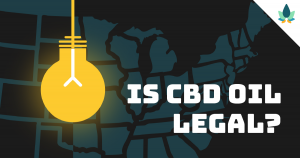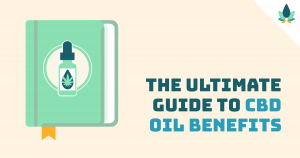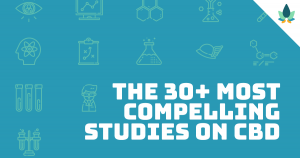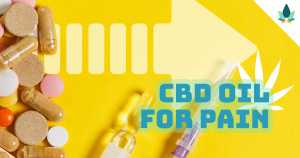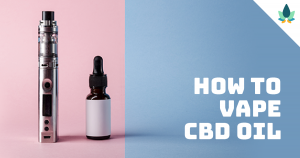Is hemp weed? Simple answer: no.
But, we’re guessing you want to know a little more than that. Let’s go deeper.
If you’re here, you’ve likely noticed a few terms relating to CBD usage, and might be wondering what they all mean. You’ve also probably started wondering whether CBD oil is the same as hemp oil, and if not, what’s really the difference between the two?
Looking to learn more about hemp vs. cannabis vs. marijuana, and more? You’ve come to the right place… We’ll answer your questions and have you on the right track in no time.
By Definition: Cannabis, Marijuana, Hemp
To truly understand the difference of marijuana CBD oil and hemp oil it’s important to get a few definitions out of the way.
We’ll start at the top and work our way down.
CANNABIS
While the term is often used interchangeably with marijuana, that’s not quite accurate. Instead, cannabis – or Cannabis Sativa – is a species of plant that was originally found in Central Asia. Plants within the Cannabis species include both hemp and marijuana, each with similar and varying uses. Cannabis plants are widely cultivated for fibers, seeds, oils, leaves, juices, flowers and more.
MARIJUANA
Marijuana is a type of cannabis plant with numerous strains. Cultivated for thousands of years, with noted uses dating as far back as ancient Egypt, marijuana contains hundreds of compounds, 60 of which are unique to cannabis plants alone. These are called cannabinoids, including both THC and CBD. Unlike its counterpart – hemp, which we will cover shortly – marijuana is known for its high level – 25-30% in some cases – of THC. THC is the intoxicating component of traditional marijuana, responsible for the high that can be experienced from its ingestion or use. “CBD marijuana” or “CBD weed” are terms used to refer to cannabidiol extracted from marijuana plants. They are subjected to high levels of legal scrutiny in many states.
HEMP
CBD hemp oil refers to CBD extracted from the hemp plant, a subspecies of the cannabis sativa plant that is often cultivated for industrial use. When extracted from seeds of the hemp plant, the oil contains neither THC or CBD, and is considered a superfood or supplement, with little medicinal benefit. When sourced from other parts of the plant, the oil contains pure, high levels of CBD and other cannabinoids, but less than .03% THC.
HEMP OIL
Often, the plain term “hemp oil” is confused with “hemp CBD oil.” Plain hemp oil is derived from the seeds of the hemp plant, and contains very little CBD (unlike the oil harvested from other parts of the plant, which we’ll cover later). Plain “hemp oil” is considered more of a supplement than anything else, and does not provide all of the benefits of “hemp CBD oil.”.
Even though the terms are related, understanding the difference of hemp vs. weed is critical.
Legality and Loopholes: What You Should Know
Before Purchasing Hemp CBD Oil
To start to understand the legality behind CBD oil in its various forms, we must answer a single question: can hemp oil get you high?
Why this question? Because most laws relating to drug use in the United States start with whether or not a compound is intoxicating. Of course, there are exceptions to this. But to be as clear as possible, hemp oil and hemp CBD oil cannot get you high.
While the laws governing medical marijuana and CBD derived from the marijuana plant vary from state to state – CBD derived from hemp plants is legal in all 50 states.
It can be purchased in various formats and shipped into each state without breaking the law. This was solidified with the passage of the Farm Bill, signed by President Trump in December of 2018, allowing farmers to grow industrial hemp across the country. (1)
Because of the ease in purchasing hemp CBD oil, its lack of THC and its legal status, hemp CBD oil is often an excellent starting point for anyone interested in adding CBD to their routine.
So…What is Marijuana Made of? What is Hemp Made Of?
Compositional Differences of CBD
We’ve covered critical definitions and the legality of hemp CBD oil.
Let’s go deeper.
The differences between standard hemp oil, Hemp CBD oil, and marijuana-based CBD oil are great.
The reason? It all boils down to the amount of CBD and the amount of THC in each.
CBD oil from other parts of the plant and from the marijuana plant can contain much more – upwards of 20 percent – making it more potent and allowing for greater medicinal benefits.
Plain hemp oil contains high amounts of Omega 3 and 6 fatty acids, giving it more nutritional value than anything else; it’s often used in cooking for its nutty flavor.
Traditional marijuana, on the other hand, is extracted from the leaves, flowers, buds, and stems of the marijuana plant. These are eaten, smoked, vaped, put into tinctures, teas and more.
Marijuana has various strains, each with different amounts of THC and CBD, making a standard dose more difficult to measure or obtain, especially when used for recreational use and not regulated by medical marijuana laws.
CBD hemp oil falls somewhere in the middle. Obtained from the flowers, stems, and buds of the hemp plant, it contains more CBD than the seeds of the plant.
When obtained from a reputable supplier, the amount of CBD per mg of oil can be measured, allowing for greater control over dosing for regular, medicinal use, even when marketed as a supplement.
Once again: CBD oil extracted from hemp plants cannot get you high!
Even better, according to a World Health Organization official memo, CBD creates no harmful effects or risk of dependence in humans. (2)
Understanding the composition of CBD oil is critical to determining what is best for your individual medical needs.
Medical Benefits: What is Hemp Oil Good For?
Now that we’ve established the difference, what is hemp oil good for? What about hemp CBD oil?
As already explained, plain hemp or hemp seed oil is more of a nutritional supplement than anything else.
The seeds themselves can be sprinkled on foods or consumed on their own, and its oil can be used in cooking or even as a tincture to obtain Omega fatty acids, vitamin E, and other compounds.
Medicinal hemp oil comes from the CBD obtained from other parts of the plant. It has a variety of benefits including:

CBD Oil for Pain

CBD Oil for Anxiety and Depression
18 percent of US adults suffer from anxiety conditions and depression. CBD interacts with the body in a similar fashion to anti-depressants and anti-anxiety drugs, without the need to constantly adjust doses (link to anxiety and depression pieces), without negative side effects, and without the “cloud” many patients complain of when starting a traditional treatment regimen. (3, 4, 5)

CBD Oil for Epilepsy

CBD Oil for Overall Mental Wellness

CBD Oil for Digestive Issues
The conditions above are some of the more popular medicinal uses for hemp CBD oil, but, the list is in no way comprehensive. Check out our Ultimate CBD Benefits Guide for additional uses and benefits!
Finding High Quality Hemp Oil
Even after narrowing down which CBD oil is right for you, it’s critical to understand that not all CBD oils are created equally.
A lot depends on the grower, the manufacturer, the production process and more. It’s important that CBD oil contains a legal amount of THC. This prevents it from showing up on drug tests and/or causing intoxicating effects. To quality test your CBD, ask the right questions upfront and follow the next steps.
Take the time to learn about how a particular brand performs quality testing on its CBD products, on dosing information and the ratios of CBD and THC in each product. Additionally, check out what additives may be in the products you’re interested in.
From there, read reviews.
While almost any product will have a negative review or two, if you notice a pattern, it might be a red flag worth your attention.
You should be able to find or request the information you’re looking for, and feel confident before making a purchase. If something feels off, it may be in your best interest to look elsewhere.
As with all supplements, medications and treatments that affect your health, be sure to speak with a medical professional about your individual needs before moving forward. Even with few side effects or interactions, this is important!
Ready to find a better way to promote balance and find relief? Hemp CBD might be exactly what you’ve been searching for!


